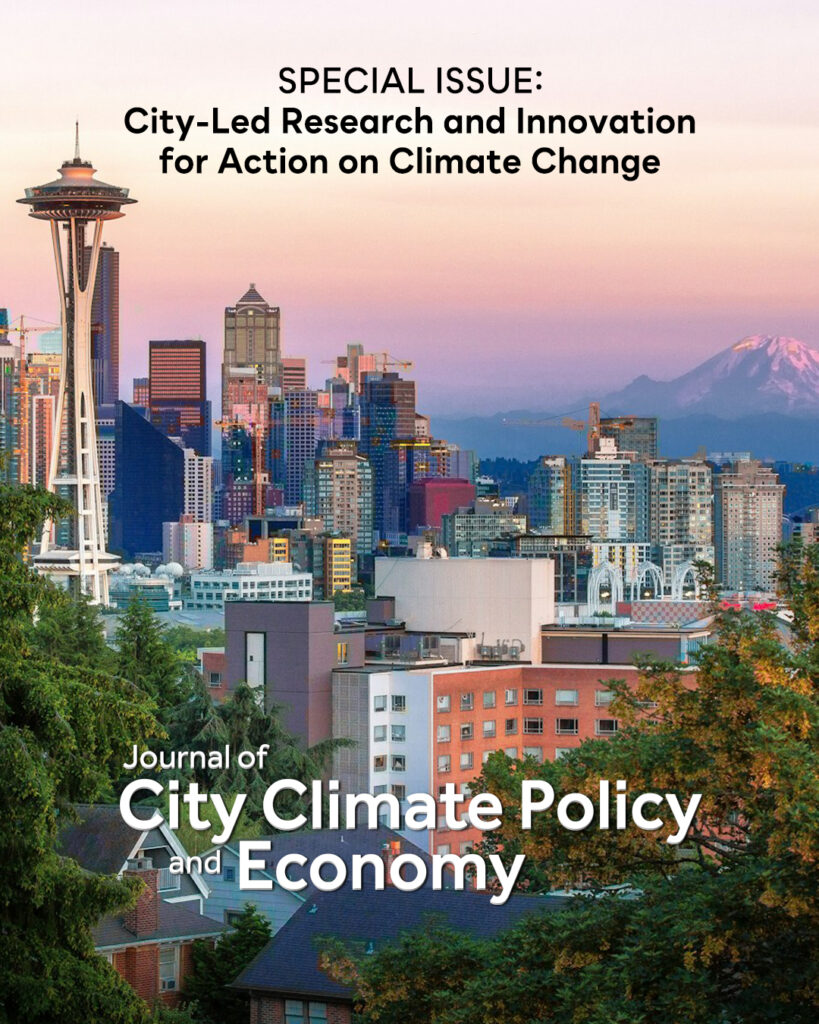
Discover the City-Led Special Issue of the Journal of City Climate Policy and Economy
Cities are at the heart of the fight against climate change, leading local action and inspiring global progress. To highlight the essential role of urban practitioners in advancing climate solutions, the Journal of City Climate Policy & Economy has released a special issue dedicated to “City-Led Research and Innovation for Action on Climate Change”.
Developed in collaboration with the Global Covenant of Mayors for Climate & Energy (GCoM) – with Dr. Cathy Oke, director of the Melbourne Centre for Cities and senior advisor, Innovate4Cities and Benjamin Jance IV, head of research and innovation, GCoM serving as co-guest editors – this collection of original research and commentaries brings together real-world case studies and analysis from cities and local governments across the globe—offering comprehensive insights into the policies and strategies propelling us to more resilient and low-carbon urban areas.
From Nairobi’s governance strategies to Guatemala City’s nature-based solutions and Cape Town’s energy poverty alleviation efforts, the featured articles provide a practitioner-led perspective on climate action. They illustrate how cities are not only implementing solutions but also shaping the global climate discourse through direct contributions to research. With a focus on knowledge-sharing, this special issue was designed to align with – and help inform – both the Global Research and Action Agenda on Cities and Climate Change Science (GRAA), the latest edition of which was launched at the 2024 Innovate4Cities Conference in Montréal, Canada, and the upcoming IPCC Special Report on Climate Change and Cities.
This special issue collection highlights the depth and breadth of knowledge at the nexus of science, policy, and practice, and how local governments are key actors in shaping climate governance and co-generating the knowledge and approaches needed for cities to meet their climate goals at speed and scale. By sharing lessons from on-the-ground implementation, city leaders, researchers, and policymakers can co-create knowledge that drives systemic change.